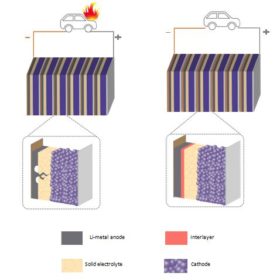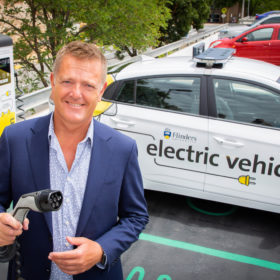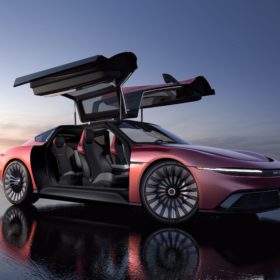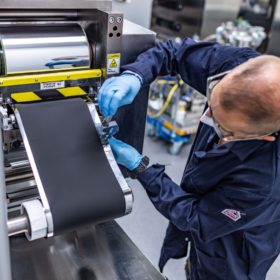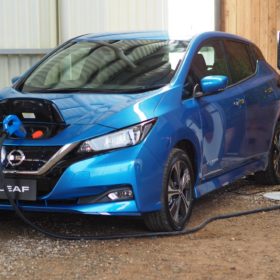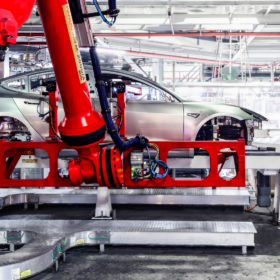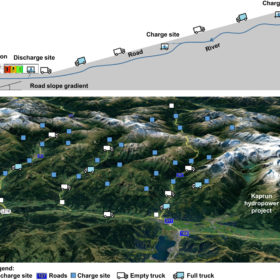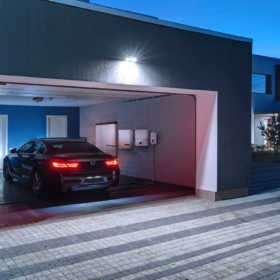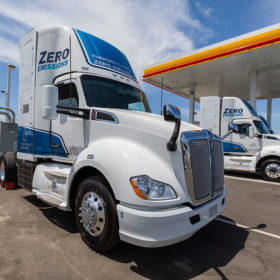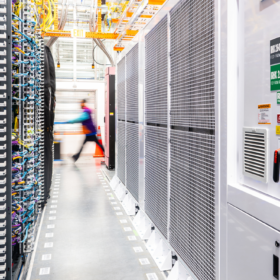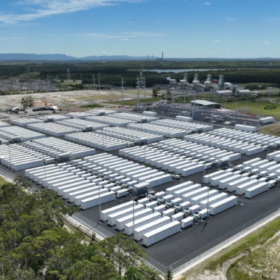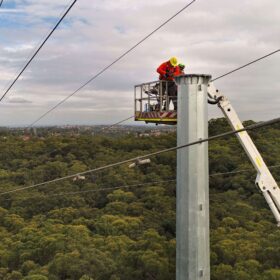Indian researchers find way to stop dendrites in solid-state lithium batteries
Researchers from the Indian Institute of Science, Bangalore, have found that nanoscopic refractory metal layers like tungsten could improve dendrite growth tolerance in electrolytes of solid-state Li-ion batteries. The team collaborated with researchers from Carnegie Mellon University.
New V2G chargers progress Flinders University’s ‘virtual battery’ vision
South Australia’s Flinders University has installed 20 vehicle-to-grid (V2G) chargers to fully utilise the battery capacity of its growing electric vehicle fleet. It plans to use the distributed EV fleet to supply power to the campus grid in the evening. The initiative is supported by $350,000 (USD 220,000) of funding from the state government.
Delorean goes back to the future with new EV
Electric vehicle buyers could soon have another brand to add to their list of potential cars with the DeLorean Motor Company revealing details of its all-electric Alpha 5, a modern reimagining of the 1980s cult classic sports car made famous by the Back to the Future film trilogy.
US startup unveils non-flammable batteries for EVs, storage
Alsym will produce its new batteries – made of readily available materials, without lithium or cobalt – for electric vehicles, stationary storage, and marine applications.
Realising electric vehicle-to-grid services
Dr Kathryn Lucas-Healey on vehicle-to-grid (V2G) technologies and the Australian National University’s (ANU) Realising Electric Vehicle-to-grid Services project which will see electric vehicles being used to support the the national electricity grid.
Battery metals: How quickly can supply ramp up?
A couple of weeks ago, Goldman Sachs sent shockwaves through battery metals markets, issuing a prediction that cobalt and lithium in particular were due for a sharp price decline in the next two years. But London-based Benchmark Mineral Intelligence is loudly pushing back, outlining its reasons why it believes the call on lithium was wrong. Meanwhile, US analyst Wood Mackenzie says that the battery raw material chain will remain tight, but notes that recycling could help to ease the supply deficit.
Australian miner seals Tesla lithium supply deal
Australian battery minerals company Liontown Resources has completed negotiations to supply electric vehicle and battery maker Tesla with spodumene concentrate from its Kathleen Valley lithium project in the Goldfields region of Western Australia.
Storing hydropower via regenerative braking in electric trucks
An international research team has proposed the use of water from high-altitude rivers and regenerative braking in electric trucks to store electricity for reuse in power networks, or for transport purposes.
Test production starts at SolarEdge’s 2 GWh Korean battery cell fab
The inverter and battery manufacturer says its new Sella 2 factory will produce cells for its residential solar-plus-battery products as well as for other applications.
China dominates transport fuel-cell patents
The World Intellectual Property Organisation says China accounted for 69% of the patents filed for transport-related fuel-cell tech in 2020, with road transport significantly dominating applications.
